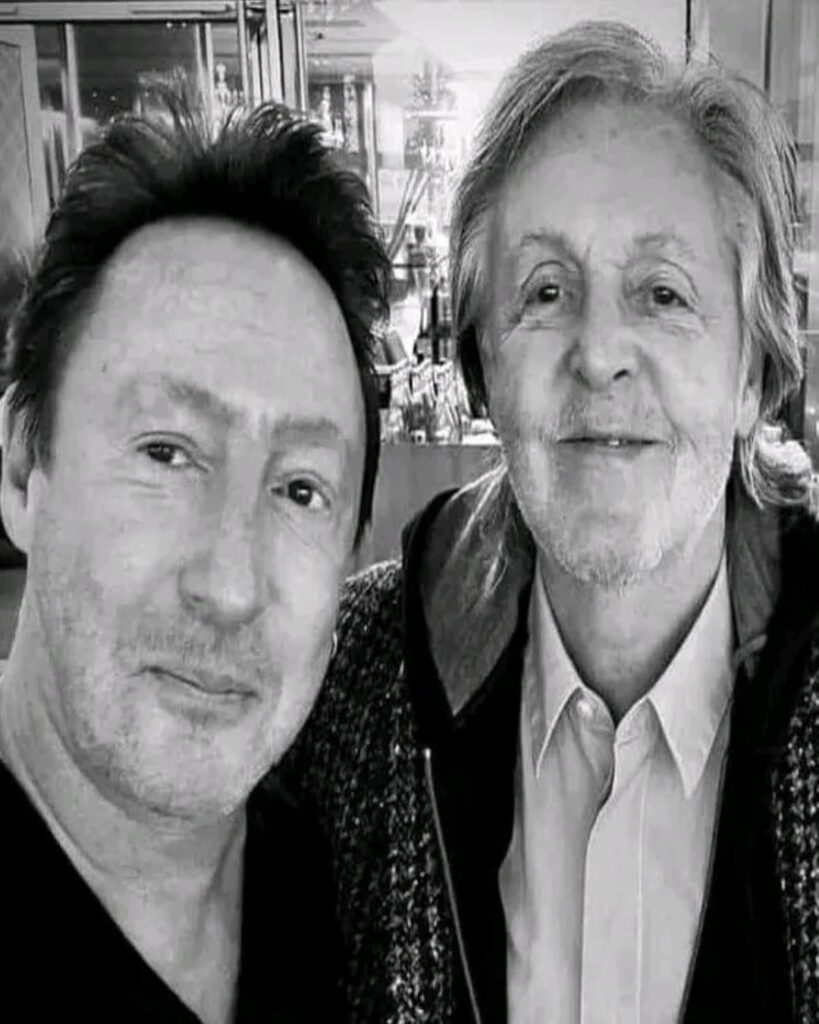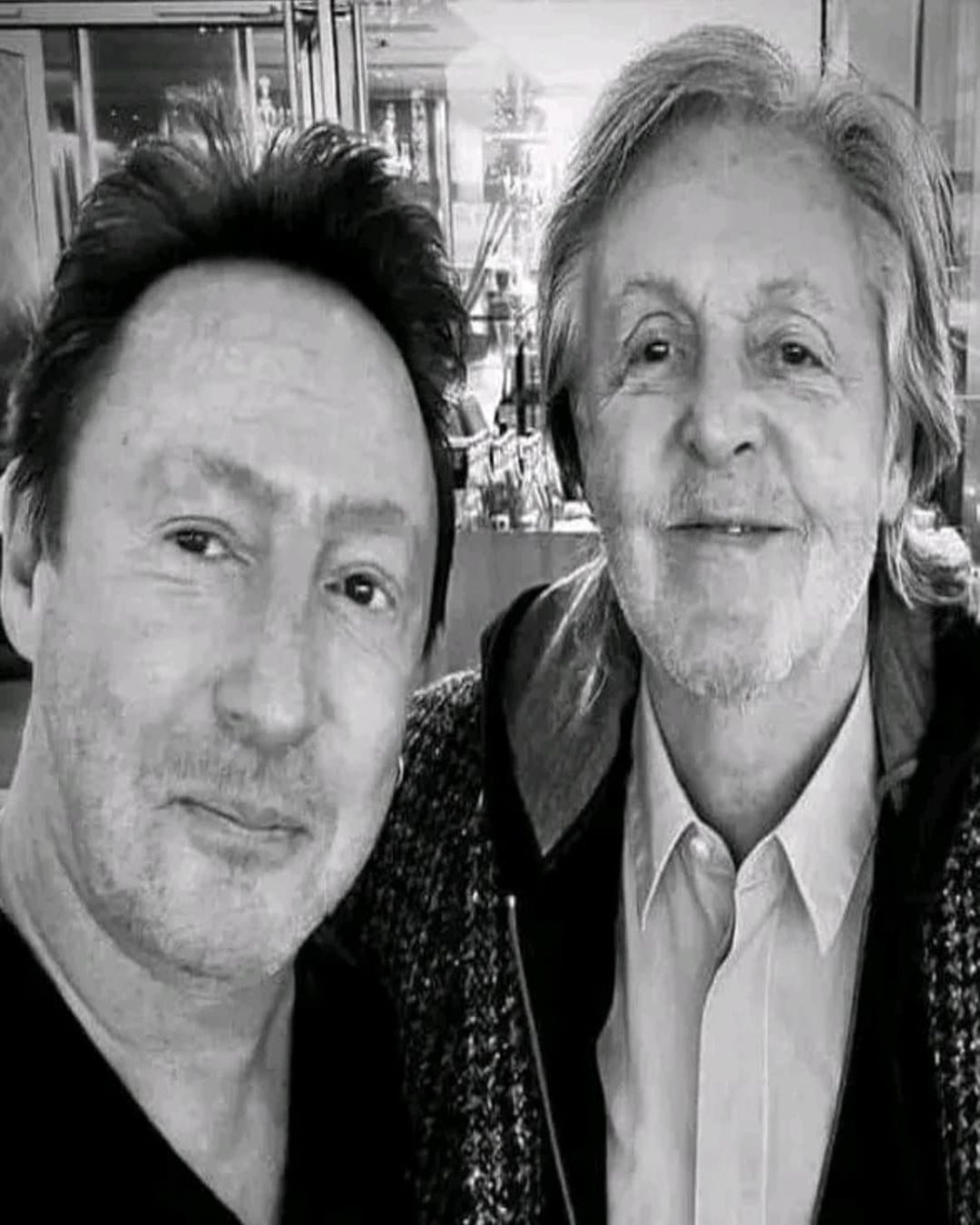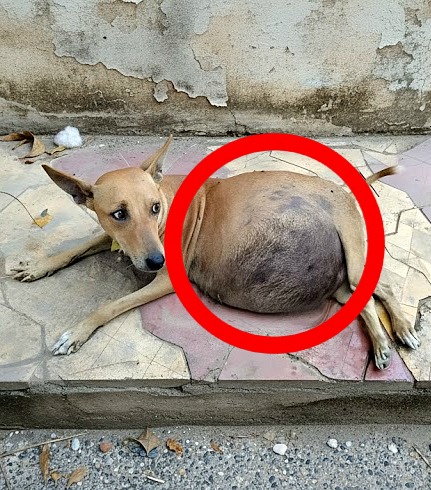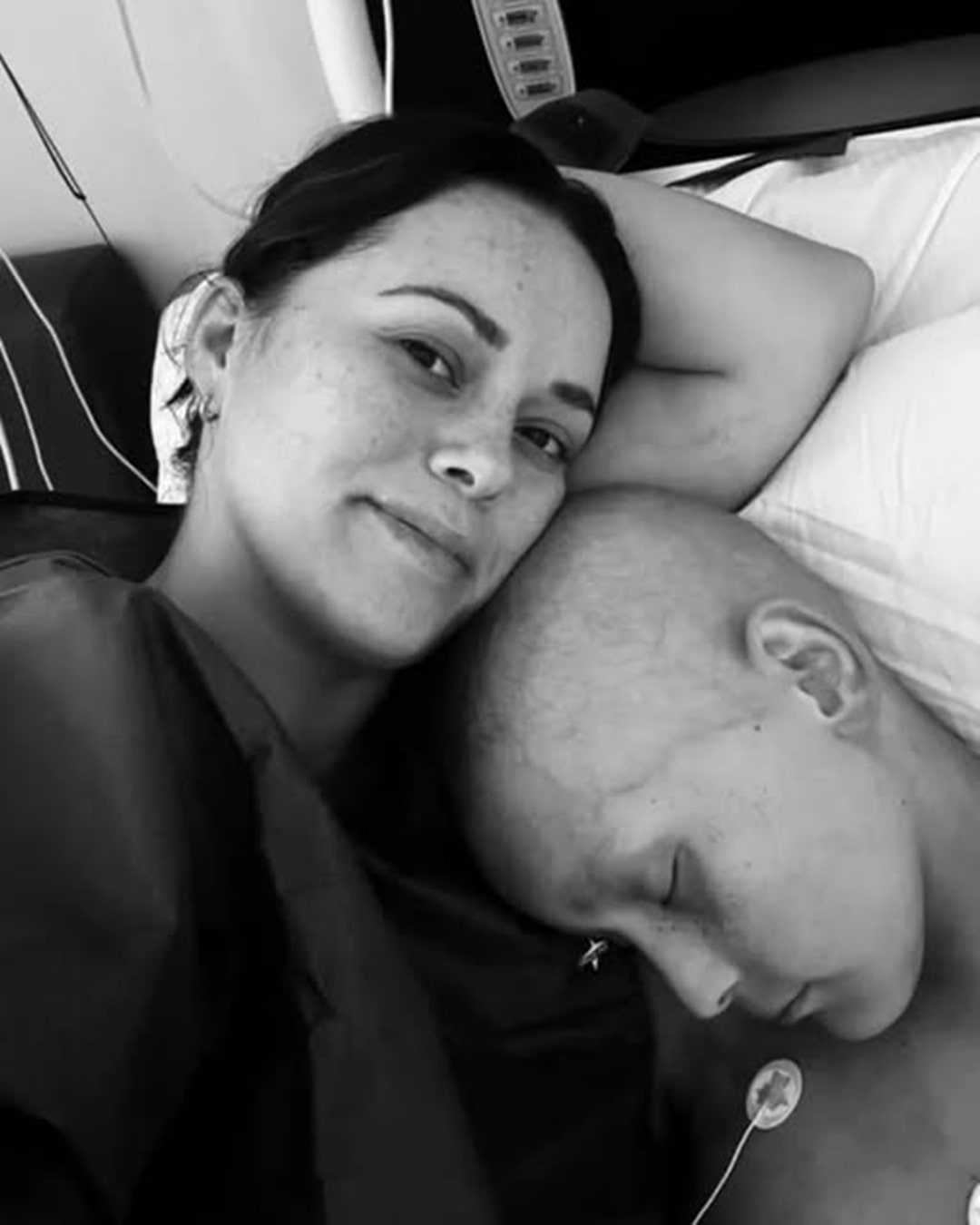Julian Lennon had an encounter that felt like destiny. While passing through an airport lounge, he spotted Paul McCartney—and realized Paul was listening to a track from Jude, Julian’s new album.
The moment carried powerful symbolism. Back in 1968, Paul had written Hey Jude (originally Hey Jules) to comfort a five-year-old Julian during his parents’ separation. Decades later, Julian reclaimed that history by naming his own album Jude.
Now, more than 50 years on, the man who once wrote the anthem for him was listening to the music he created in its honor. For Julian, it was more than coincidence—it was continuity, legacy, and love carried across generations.
That quiet moment in the sterile anonymity of an airport lounge is more than just a touching anecdote; it’s the final, resonant chord in a symphony of pain, healing, and artistry that has spanned over half a century. To fully grasp its significance, one must travel back to 1968, a year of seismic cultural shifts and profound personal turmoil for the Lennon family. The Beatles were at the zenith of their creative power, yet the internal bonds that held the band together were beginning to fray. The most public and painful of these fractures was John Lennon’s separation from his first wife, Cynthia, as his intense and all-consuming relationship with Yoko Ono took center stage. Caught in the crossfire of this very public divorce was their young son, Julian. For a five-year-old, the concept of a parental split is already a world-shattering event. But for Julian, this private heartbreak was amplified by the unrelenting glare of global fame. His father was not just leaving his mother; he was seemingly leaving him for a new life, a new muse, and a new future in which Julian felt like a forgotten footnote.
It was in this crucible of confusion and abandonment that Paul McCartney stepped in, not as a fellow Beatle or a global superstar, but as a compassionate friend and surrogate uncle. Driving out to visit Cynthia and Julian in Weybridge, Paul’s heart ached for the little boy in the backseat, lost in the bewildering storm of his parents’ choices. As the miles passed, a melody began to form in his mind, a simple, reassuring tune with a message of comfort. The initial lyric was “Hey Jules, don’t make it bad, take a sad song and make it better.” He was speaking directly to Julian, offering a piece of fatherly advice and solace that John was not there to give. The song, later polished and retitled “Hey Jude” for its broader, universal appeal, would become one of The Beatles’ most iconic and beloved anthems. For the world, it was a masterpiece of songwriting. But for Julian Lennon, it was a lifeline—a permanent, musical reminder that someone cared, that he was seen and loved during the darkest period of his young life.
This single act of kindness forged a unique and enduring bond between Paul and Julian, but it also inadvertently cast a longer shadow over Julian’s life. Growing up as the son of John Lennon was a complex inheritance. He bore his father’s face, his voice, and his innate musical talent, but he also carried the weight of immense expectations and the scars of a difficult relationship. While John went on to have another son, Sean, with Yoko Ono and embraced a period of domestic life, Julian often felt like the “first family,” left behind. His own musical career, which began with the promising hit “Valotte” in 1984, was a constant struggle for identity. Every song was compared to his father’s work, every interview veered back to The Beatles. The name “Jude” itself became a public symbol of his childhood sorrow, a name he didn’t choose but which defined him in the eyes of millions. It was both a comfort and a cage.
For decades, Julian navigated this complex legacy, releasing music sporadically while also pursuing a successful career in photography and philanthropy. He needed to find his own voice, separate from the echoes of the past. The decision, then, to name his 2022 album “Jude” was a monumental act of reclamation. It was a conscious choice to confront the ghost of his past head-on, not by running from it, but by embracing it on his own terms. This wasn’t a tribute album or an exercise in nostalgia. It was a deeply personal and cathartic work, a musical journey through a life spent processing grief, forgiveness, and self-acceptance. By taking ownership of the name, he transformed it. “Jude” was no longer just the sad little boy in Paul McCartney’s song; he was now the artist in full control of his own narrative, turning the “sad song” of his life into something beautiful and whole.
This brings us back to the airport. When Julian saw Paul McCartney, headphones on, listening to a track from that very album, the circle was completed in the most profound and unexpected way. The gesture of comfort that Paul had offered on a country road in 1968 was now being returned to him, transformed into new art. Paul was not just listening to his friend’s son’s music; he was listening to the direct artistic descendant of his own act of compassion. He was hearing the result of Julian finally “making it better.” The cycle of influence had reversed. The protector was now the audience, bearing witness to the strength and resilience of the boy he once sought to shield. For Julian, this moment must have felt like the ultimate validation. It was an unspoken acknowledgment from one of the most important figures in his life that his journey was complete, that he had successfully navigated the shadow of his father and The Beatles to create something uniquely his own.
The encounter transcends personal history and speaks to the incredible power of music to heal and connect across generations. A song born from a moment of empathy became a global anthem of hope, which in turn inspired a deeply personal album of healing, which was then shared with the song’s original creator in a chance meeting. It is a story that affirms that a single act of kindness can ripple through time, its effects echoing in ways we can never predict. The legacy of The Beatles is not just in their revolutionary albums and record-breaking sales; it is in these quiet, human moments that continue to unfold, proving that the love and music they put into the world are still building bridges, mending wounds, and, in a busy airport lounge, bringing a beautiful, 50-year story to its perfect, harmonious close.

Julian Lennon had an encounter that felt like destiny. While passing through an airport lounge, he spotted Paul McCartney—and realized Paul was listening to a track from Jude, Julian’s new album. The moment carried powerful symbolism. Back in 1968, Paul had written Hey Jude (originally Hey Jules) to comfort a five-year-old Julian during his parents’ separation. Decades later, Julian reclaimed that history by naming his own album Jude. Now, more than 50 years on, the man who once wrote the anthem for him was listening to the music he created in its honor. For Julian, it was more than coincidence—it was continuity, legacy, and love carried across generations.












